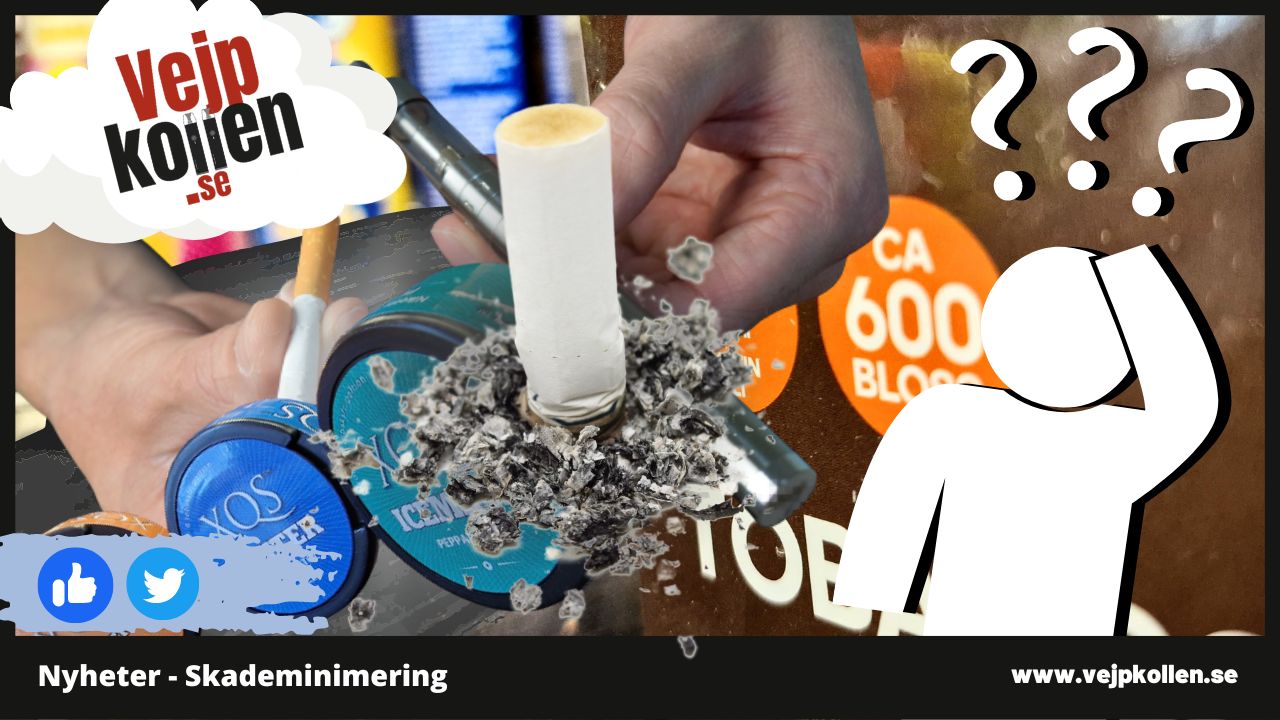E-cigarettes are significantly less harmful than traditional cigarettes.
Many independent studies show this. But tobacco companies have also funded a large number of studies showing the same thing, although these are often viewed with scepticism.
The Replica project was designed to replicate and validate previous studies on smoke, vapour and its physical effects. It focuses on recreating studies previously conducted by tobacco companies.
The Replica project acts as a network of research laboratories across the world - both in academia and in conjunction with various institutions. Since 2019, the team has conducted multidisciplinary studies comparing the latest generation of alternative products, such as e-cigarettes and tobacco heating systems, with traditional tobacco cigarettes. The aim is to replicate and validate results from previously conducted studies but in other, independent laboratories.
Reason to question the results
The researchers behind the Replica project argue that the studies are particularly relevant in light of what is known in science as the 'reproducibility crisis'. Some research results simply cannot be replicated or reproduced by other researchers, calling into question the credibility of the results presented.
"As many studies are also commissioned by large companies, there is reason to question both the objectivity and the results." The researchers behind the project conclude.
Evidence for regulation
The Replica project brings together researchers from seven different countries and laboratories to replicate and evaluate the results of previous studies. This includes studies from the research and development departments of tobacco companies. The aim is to ensure whether the results are reliable and whether they can be used as a basis for evidence-based discussion and possible regulation of tobacco products and what they casually refer to as 'electronic nicotine delivery systems', or simply e-cigarettes.
Research from individual tobacco companies
In a variety of projects, the Replica team has replicated previous research. In a recently published study, the project replicated a study from the tobacco company Imperial Brands. The 2020 study showed that e-cigarette aerosol, i.e. small particles atomised in a gas, has minimal or no cytotoxic, mutagenic and genotoxic effects compared to cigarette smoke. As in the original results, it was found that cigarette smoke caused major damage to the cells, while e-cigarette aerosols had little or no harmful effects.
Less or no damage to lung cells
Although the two studies had some differences in the way they were conducted, the results supported those previously presented by Imperial brands. For example, the Replica project deliberately used different brands of cigarettes and different devices to generate smoke and aerosols to see if the results were the same.
The team used three standard tests to assess the dangerousness of the product: the NRU test to see how toxic the smoke was, the Ames test to see if it affected the genetics of the cells, and the in vitro micronucleus test to measure any genetic damage. The results clearly showed that the E-cigarette aerosol was less dangerous to the cells, while the cigarette smoke had high cytotoxicity, mutagenicity and genotoxicity.
Want to check more studies
The replica team and the Coehar Institute hope the new findings will have a significant impact on the regulation and communication of e-cigarettes. They believe that the results strengthen the thesis that vejpning is a less dangerous alternative for tobacco users. "
Continued research and independent replication of studies like this are essential to make informed regulatory decisions and promote public health." Says the publication.
Gets money from tobacco companies
The Replica project is part of the Coehar Institute ("The Centre of Excellence for the Acceleration of Harm Reduction") at the University of Catania in Italy. The institute receives part of its funding through "Foundation for a Smoke-Free World (FSFW). The FSFW is a seemingly independent scientific organisation with the aim of "accelerate the end of smoking". At the same time, the Foundation itself is entirely funded by the Philip Morris International (PMI).
Reds note: Research that is essentially funded by a commissioning company does not necessarily mean that the studies are less robust, or that the researchers involved are less serious. Vejpkollen believes, however, that all reporting on research should be based on transparency regarding the funding of research and the sender's possible conditions.




